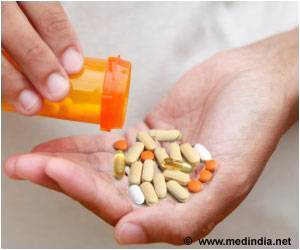In COVID-19 positive patients, zinc or ascorbic acid (vitamin C) - or a combination of the two do not reduce the severity or duration of symptoms.

The COVIDAtoZ clinical trial enrolled 214 adult patients with a confirmed COVID-19 infection. Patients were randomized and either received 10 days of zinc gluconate (50 mg), vitamin C (8000 mg), both agents, or standard of care from April 2020 to October 2020. The study was stopped for futility, with no significant difference among the four groups. Specifically the endpoint of a 50% reduction in symptoms showed no significant difference between the usual care, vitamin C, zinc gluconate or the group receiving both vitamin C and zinc gluconate.
“When we began this trial, there was no research to support supplemental therapy for the prevention or treatment of patients with COVID-19,” said Milind Desai, M.D., MBA, director, clinical operations in Cleveland Clinic’s Heart Vascular & Thoracic Institute and co-principal investigator of the study. “As we watched the pandemic spread across the globe, infecting and killing millions, the medical community and consumers alike scrambled to try supplements that they believed could possibly prevent infection, or ease COVID-19 symptoms, but the research is just now catching up. While vitamin C and zinc proved ineffective as a treatment when clinically compared to standard care, the study of other therapeutics continues.”
The patients enrolled in this study were not hospitalized, but rather managed on an outpatient basis. “We know that not all patients with COVID-19 require hospital admission, and compared to those being treated in a hospital setting, they are more likely to be seeking out supplements that could help them, so it was an important population to study,” said Suma Thomas, M.D., MBA, vice-chairman of strategic operations in Cleveland Clinic’s Heart Vascular & Thoracic Institute and co-principal investigator of the study.
A total of four safety events were observed during the trial, including 3 deaths, however the data safety monitoring board did not believe that any of the adverse events were caused by individual treatments that patients received as a part of the study.
There are steps people can take to reduce the risk of infection. When possible, get a COVID-19 vaccine. Continue to socially distance, wash your hands often, and wear a mask in public.
Advertisement














